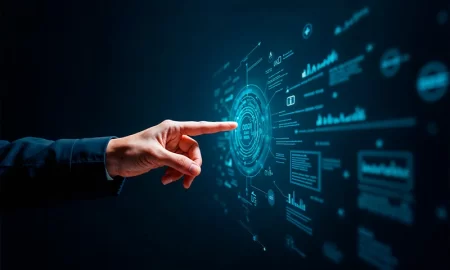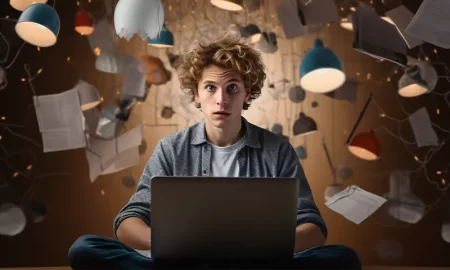The Impact of Social Media on Mental Health
Due to the influencing factors in use and adaptation of a statement in society forums like tissues with such ideas as person, media and others brought it back. The leading cause of this argument is that there are character perspectives which have redefined and put forth out principles its top most socialization approach has influenced people at large. As we will see, in the coming part of the essay, that to what extent does social networking sites contribute to our mental health? Though social networking sites can lead to improved moods among other advantages over depressive symptoms like hopelessness and low self-esteem; they end up bringing disharmony in them when misused and create a world where everybody is an island that stands alone. Social Media has assumed a pivotal position in modern life. With platforms such as Facebook, Instagram, Twitter and TikTok redefining relationships by changing how we interact with our friends, narrating events of our lives or even consuming information today has increased affection without denying its drawbacks especially considering the negative impact it has on mental health. While there are merits associated with these platforms there are concerns regarding impacts on one’s psychological status: those difficulties faced therein may have positive or adverse consequences on human beings’ welfare depending on what they do concerning them. Nevertheless a delicate equilibrium must exist between advantageous utilization of this phenomenon and excessive employment therein.
Positive Effects of Social Media on Mental Health
Although a widely held notion, that social media is always harmful to our mental health, is not entirely true. When utilized judiciously, social media has multiple benefits which can enhance mental well-being.
- Building connections and providing support: One of the primary advantages of social media is its role in unifying social circles. It offers a platform for individuals who feel disenfranchised and alone to reach out for companionship. For people living in solitude or remote coastal premises scribbling their codes upon the callous rocks, it’s a channel through which they can still get some joy of their beloved family members. Moreover, individuals can find forums supporting them anytime they want where they meet others suffering similar conditions such as psychological issues or chronic ailments.
- Creating awareness: The forums available on social media have emerged as the effective instruments for creating awareness among individuals regarding psychological disorders. Campaigns that promote mental health awareness, de-stigmatization as well as open discussions about the same are often started on the web-based platforms thereby educating and providing resources to persons who need them most. This could help reduce the stigma that surrounds mental illness and encourage individuals to ask for help more.
- Inspiration and Positivity: When utilized mindfully, social media can serve as a wellspring of inspiration and encouragement. Numerous pages are devoted to sharing inspirational posts, fostering mindfulness, and promoting self-care activities. Many people subscribe to these accounts to boost their spirits while keeping abreast of current affairs or pursuing hobbies that ignite joy.
Harmful Repercussions of Social Media on Mental Health
Social media has positive effects, but it has negative impacts as well which can cause mental problems. The effects mostly happen due to excessive use, comparing oneself with others and there are certain sites that are so much addictive.
- Comparisons on Social Media Leading to Low Self-Esteem Amongst its Users: Social media has become more harmful due to the tendency of comparing oneself with others. The influencers and equal’s life is always shared on social platforms making one feel inferior if they cannot attain such life as theirs . resulting from this are low self-esteem ,anxiety or even depression .This is because the social media focuses mostly on appearance, wealth and success which deviates from real scenarios causing them to believe they are not sufficient.
- Cyberbullying And Harassment: Cyberbullying and harassment are also rampant within social networks . Hateful comments, threats , or online shaming may be directs at these people especially young users by older generations. This kind of bullism is made easy by anonymous identities that can lead to permanent trauma for victims . According to research studies conducted earlier, a correlation exists between cyber bullying instances anxiety levels, depression episodes or suicidal thoughts development among adolescents aged between fifteen and nineteen years(15-19).
- Addiction and Distraction: Social media was created for being reactive. The continuous burst of notifications, likes and comments can mean scrolling for hours while neglecting other more important things like work, sleep or face-to-face interaction. Then it makes one feel affiliated less with the real world, stressed and less productive. Research has established that more time spent in social media translates to having more mental troubles such as anxiety and depression.
- Sleep Disruption: On the other hand, the bright screens from smartphones and their accompanying entrapment in social media could destroy good sleeping habits. A lot of persons usually go through their phones before going off to bed which in turn alters their sleeping pattern thus causing them to have poor quality sleep. Also studies have shown that lack of enough hours asleep worsens mental problems making it a rotatory cycle of tiredness together with instability emotionally.
Finding a Healthy Balance
To establish if there is a beneficial or harmful effect with regard to mental well-being this implies that it is necessary for everyone to strive for that balance which allows them enjoy its advantages but also go beyond the downside effects. Some approaches are as follows:
- Establishing Time Limits: In order to avoid excessive use, it’s essential to draw limits on the use of social media platforms. Nowadays, numerous platforms have screen time trackers to help users keep track of how much they use them and set daily limits.
- Choose Wisely Who You Follow: Pay careful attention to the people you choose to follow. Unfollow people who make you feel like you are not good enough or stressed out and instead go for those that encourage positive energy and are motivating.
- Take Breaks: Taking breaks from social media frequently can help bring your mind back into perspective. Using some hours or days will allow you detach yourself from the online world and concentrate on yourself.
- Interact with Purpose: Rather than scrolling through an account absent-mindedly, try interacting with posts that are uplifting or serving a personal development purpose.
Conclusion
social media acts as a two-edged sword. The meaningful connections and mental health support that can be derived from it only happen when it is used with a lot of intentionality. On the other hand, when abused or over-used, they have got disastrous impacts on one’s emotions. It is therefore important to handle these platforms with caution and know that they should add value to our lives and not subtract from them.












